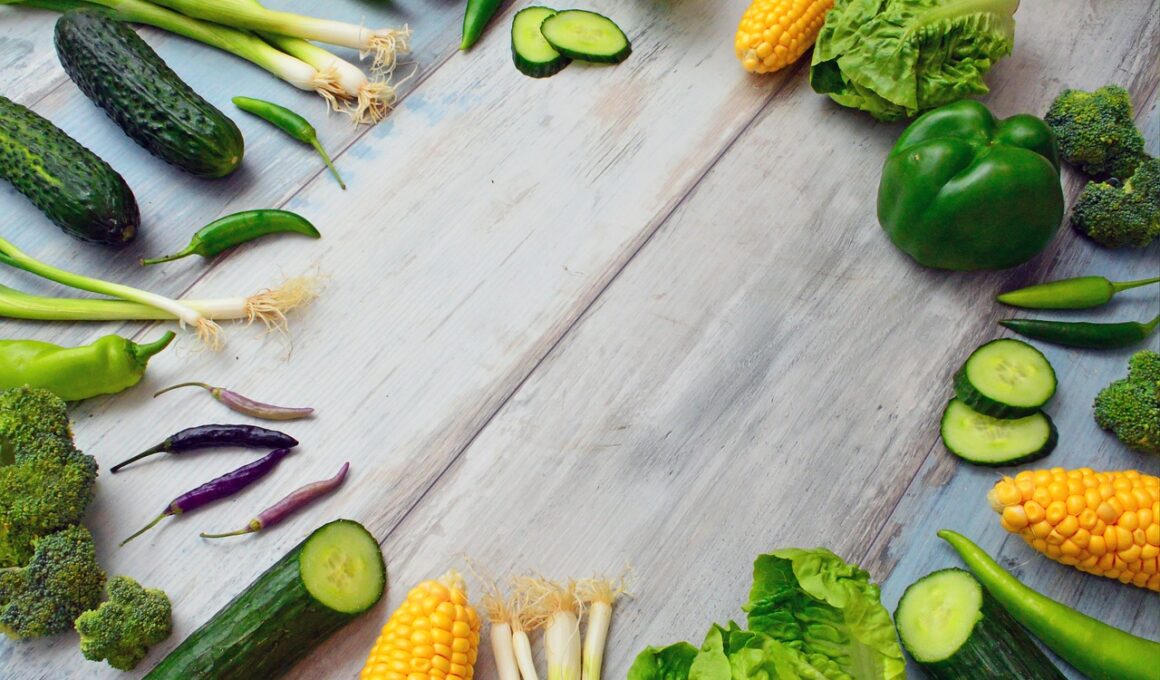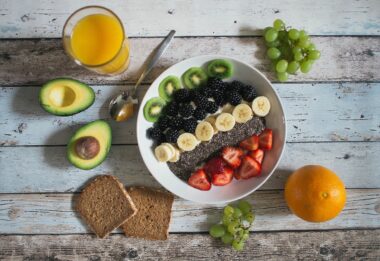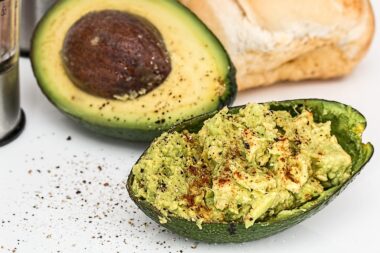The Science Behind Healthy Snacking and Weight Reduction
The concept of healthy snacking plays a crucial role in effective weight loss strategies. When people think about losing weight, they often imagine avoiding snacks altogether. However, this is a misconception. Instead of depriving oneself of snacks, incorporating the right kinds can help regulate hunger, improve metabolism, and maintain energy levels throughout the day. Research shows that healthy snacks can help individuals feel fuller for longer, reduce cravings, and prevent overeating during main meals. By selecting nutritious snacks, one can satisfy their cravings without compromising their dietary goals. These snacks also provide essential nutrients that the body needs. When planning to lose weight, the typical choice focuses on portion control. However, understanding the nutritional content of what’s consumed can make a huge difference. Including snacks like fresh fruits, vegetables, nuts, or whole-grain options not only allows for moderation but can actively support the weight loss process. A balance of proteins, fats, and fiber in snacks is particularly significant for achieving desired outcomes. Thus, when prepared thoughtfully, snacks can be a valuable ally in any weight reduction journey.
Healthy Snack Suggestions
In the realm of healthy snack options, there are numerous foods that can contribute positively to weight loss goals. Some popular choices include fruits such as apples, berries, and bananas, rich in vitamins and fiber. Vegetables like carrots, cucumbers, and bell peppers also serve as great snacks when paired with hummus or yogurt dips. Nuts, while calorie-dense, are packed with healthy fats and proteins, aiding in satiety. When snacking, portion control is crucial to ensure that calorie intake remains in check. For those looking for more substantial options, a rice cake topped with almond butter offers crunch along with essential nutrients. Edamame, rich in protein and fiber, is another excellent choice for a quick, satisfying snack. Additionally, incorporating low-calorie popcorn or homemade trail mixes into one’s diet can add variety and excitement without significantly impacting weight loss efforts. Always strive for a diverse array of flavors and textures to keep snacks interesting. By choosing these healthy options, individuals can snack wisely, support their metabolic health, and seamlessly align their choices with their weight loss objectives.
The Role of Protein in Snacks
Protein plays an instrumental role in healthy snacking, particularly for those trying to lose weight. Protein-packed snacks help to create feelings of fullness and satisfaction, which is beneficial in regulating appetite. Foods rich in protein can significantly enhance metabolism, as the body requires more energy to digest protein compared to fats or carbohydrates. This thermogenic effect can support a strategic weight loss plan. Some excellent sources of protein include Greek yogurt, cottage cheese, and boiled eggs. Additionally, protein bars can be a good option as long as they are low in sugar and made from whole ingredients. It’s essential, however, to read labels to ensure quality over quantity. Incorporating protein-rich snacks can be especially helpful between meals to prevent sudden hunger pangs. As result, individuals may find that they can reduce their overall caloric intake without feeling deprived. Furthermore, these snacks aid in muscle repair and growth, making them ideal for active individuals. Opting for healthy snacks high in protein creates a sustainable and effective approach to weight loss, ensuring both health benefits and satisfaction.
The Impact of Sugar on Snacking
One of the key factors to consider when selecting snacks is the impact of sugar on overall health and weight loss. Many snacks available in the market are loaded with added sugars, which can contribute significantly to excess calorie intake. These sugary snacks spike blood sugar levels, leading to crashes that trigger cravings for more food, creating a vicious cycle. As a result, substituting sugary options with whole, natural foods can dramatically enhance one’s weight loss journey. Instead of consuming a sugary granola bar, consider snacking on a piece of fruit or a handful of nuts. These alternatives not only satisfy sweet cravings but are also packed with fiber, helping you feel full longer. Reading food labels is crucial for identifying hidden sugars in snacks. Many people underestimate their daily sugar consumption, leading to unintentional weight gain. By choosing snacks with little to no added sugars, individuals can dramatically improve their overall health. Healthy snacking focused on minimizing sugar intake leads to better energy levels, improved metabolic health, and better outcomes with weight reduction efforts.
Mindful Snacking Practices
Engaging in mindful snacking is an effective strategy that can complement any weight loss plan. Mindful eating encourages individuals to pay attention to their hunger cues and the actual experience of eating, enhancing satisfaction. It’s essential to create a distraction-free environment during snacking; turning off the television or putting away devices can foster a deeper connection with the snack consumed. When individuals focus solely on their food, they are more likely to recognize their true level of fullness. Additionally, savoring each bite and enjoying the flavors can create a more fulfilling experience. Taking time to chew food thoroughly not only helps with digestion but also enhances feelings of satiety, making the person less likely to overeat. A mindful approach helps establish a healthier relationship with food, encouraging more nutritious choices. Furthermore, considering the sources and benefits of various snacks, such as opting for organic or locally sourced items, can considerably enhance the overall snacking practice. In turn, this mindful approach contributes to sustainable weight loss while still allowing for enjoyable eating experiences.
Creating Balanced Snack Combinations
Crafting balanced snack combinations is essential for effective weight management. A well-rounded snack typically includes a source of protein, healthy fats, and fiber to sustain energy and fullness. Considering this, pairing nut butter with apple slices creates a delightful mix of flavors while offering lasting satisfaction. Alternatively, a hard-boiled egg with whole-grain crackers can serve as a quick and nutritious option. Incorporating colorful fruits and vegetables into snacks not only enhances visual appeal but also maximizes nutrient intake. When understanding food pairings, it’s important to prioritize combinations that provide a wide array of vitamins and minerals. Whole foods such as avocado, mixed nuts, and seeds can also be included as healthy fats in snacks. Green smoothies can be another clever way to combine nutrients while enjoying a refreshing drink. It’s crucial to keep portion sizes in mind, ensuring that the snacks do not lead to excess caloric intake. By creating thoughtful, balanced snacks, individuals can effectively manage their hunger and make informed choices that align with their weight loss strategies.
Conclusion: The Power of Healthy Snacking
In conclusion, healthy snacking plays a pivotal role in achieving weight loss goals and promoting overall well-being. By integrating nutritious snacks into daily routines, individuals can manage hunger, enhance metabolic health, and prevent overeating. Mindful eating practices combined with thoughtful selection of snacks can significantly impact cravings and lead to positive dietary behaviors. Focusing on nutrient-dense options such as fruits, vegetables, nuts, and lean proteins allows for delightful variety in one’s diet. Understanding the science behind healthy snacking enables individuals to navigate their weight reduction journeys with knowledge and purpose. The ability to snack wisely, while still enjoying compact bursts of flavor and satisfaction, proves that one can achieve health goals without feeling deprived. Embracing these strategies fosters not only a healthier relationship with food but also contributes to sustainable lifestyle changes. Implementing these practices encourages individuals to prioritize health while delighting in the foods they love. In the long run, achieving weight loss goals becomes attainable and rewarding through the power of healthy snacking.





